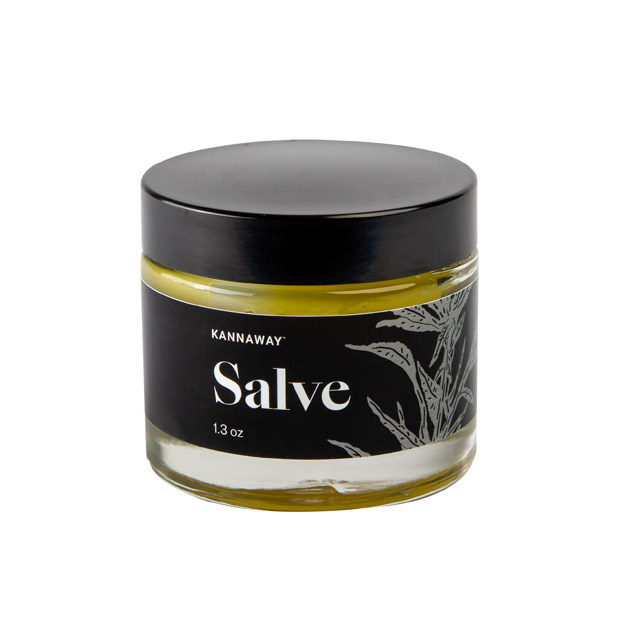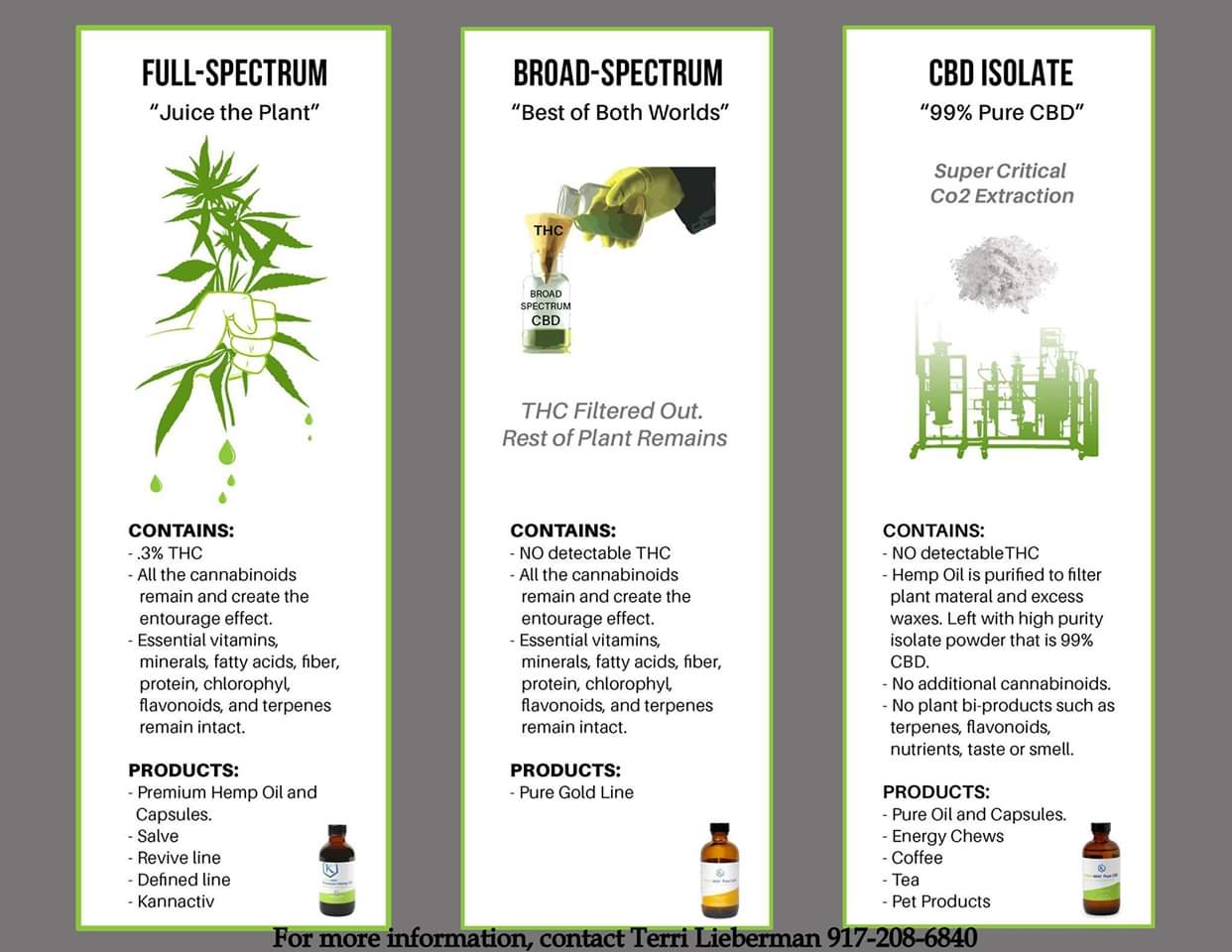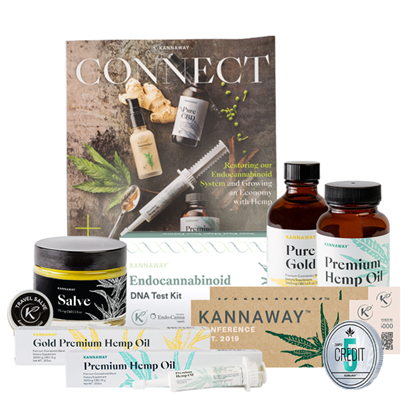CBD Oil 101: A Guide for Beginners
CBD oil. It seems like everywhere you go someone is talking about how it helps with their arthritis, sleep, anxiety, or other ailment or condition. And it seems you can find it everywhere too—from the local pharmacies to health food stores to even some supermarkets. But just what is CBD oil? Is it safe? And what can it really do?
LongIsland.com recently interviewed Terri Cohen-Lieberman, a health and wellness enthusiast, yoga instructor, and hemp CBD product retailer. She provides an overview of CBD oil and explains what CBD oil is and how people can benefit from it. Terri helps guide CBD newbies and shares her insights and expertise on how to select the right product.

Photo courtesy of Terri Cohen-Lieberman
What is your background and how did you get involved with CBD oil?
My background is law but for the last 15 years I’ve been a full-time mom practicing law periodically, on a consulting basis. I also teach yoga and sell hemp CBD products.
I started selling Kannaway CBD products in 2018. Learning about health and wellness has been a hobby of mine for over twenty years, ever since I was diagnosed with Hodgkin’s Lymphoma at 24. The experience of cancer and chemo taught me to take responsibility for my health and I like to share what I’ve learned.
What is CBD and what are the health benefits?
CBD, or cannabidiol, is one of many compounds known as cannabinoids found in cannabis. Several plants, including flax, echinacea, common tea, kava, hops, and cannabis all contain cannabinoids. Hemp is naturally abundant in cannabidiol, and has been shown to possess therapeutic properties that can balance the body and potentially assist in the treatment of many symptoms and conditions. We all have a different body chemical makeup, so CBD may benefit one person differently than it benefits someone else.
What is the science behind CBD? What can it potentially treat?
Researchers are still discovering more benefits and effects of CBD. To date, studies indicate that CBD could be beneficial for treating epilepsy, inflammation, pain, anxiety seizures, spasms, nausea, and other symptoms. CBD has also been shown to have antioxidant and neuroprotective properties. This is why I give it to my sons who play contact sports.
How does it differ from marijuana?
Hemp and marijuana are both cannabis plants, but they are very different from each other. Oranges and lemons are both citrus, but one would not consider them the same fruit.
Hemp is a tall, lengthy plant, whereas marijuana is short and bushy. Industrial hemp has tens of thousands of uses and benefits whereas marijuana has no industrial application. Most importantly, hemp cannot get a person high because it does not contain enough tetrahydrocannabinol, or THC, to be psychoactive. In fact, CBD counteracts the psychoactivity of THC, making it an appealing option for people who want to incorporate the healing powers of the plant without having to experiences the fuzziness of a high.
What is the best way to consume CBD?
Once extracted from hemp, CBD oil can be ingested orally or infused into other products like liquids, capsules, edibles, and tinctures.
Many enjoy using CBD topically by applying CBD infused salves or creams to their skin. Topical application is a great way to help relieve muscle and skeletal discomfort. Vaping the oil is a good option for people who are already in the habit of smoking or who want to receive the benefits quickly. I don’t enjoy smoking anything but do suggest a vape in specific circumstances.
The most common way people consume CBD is by ingesting an oil or tincture. The best way to do that is to place the desired amount of liquid under the tongue and hold it there for about a minute before swallowing. Holding the oil under the tongue allows it to be absorbed subcutaneously, getting into the blood system faster and avoiding the digestive system. This is the most effective way to use CBD.
CBD can be taken in capsule form and even added to food items. When added to food, the products are referred to as “edibles.”

Photo courtesy of Terri Cohen-Lieberman
What can someone expect when they use CBD for the first time?
That’s a hard question to answer because everybody is different. Some people feel calmer or less uncomfortable after their first use, but others need to use CBD for a few days to weeks before noticing real benefits.
We always tell people to start “slow and low.” We need to give the body time to adjust to the new supplement, so it’s best to work up to a full serving over the course of several days to a week. Most people need about 50mg of CBD per day to achieve homeostasis, some need more, some need less. In addition, we remind people to stay well hydrated when starting CBD so that the body can flush out any toxins that are released as inflammation is reduced.
In the beginning, if a person takes too much CBD, they may experience drowsiness, stomach upset, or a headache. Those side effects usually wear off within a couple of hours. I’ve yet to learn of anyone who experienced long-term negative side effects, but I know plenty of people with success stories.
How does someone find the right product for them?
It’s extremely important to be an educated shopper when buying CBD. Find someone you trust who can help you learn more about the products and what your body needs. Each body processes CBD differently, so be prepared for a little trial and error before you find the best product for your body.
There are three kinds of CBD products in the marketplace and it’s important to buy the product that is right for you.
Full Spectrum products are made with the entire hemp plant, so they include all the cannabinoids, phytonutrients, terpenes, flavonoids, etc. that are naturally in the hemp plant, including trace amounts of THC (0.3% or less.) My personal philosophy is to keep things as close to nature intended. I prefer the Full Spectrum products not only because they are less processed but because after some trial and error, I learned that these work best for my body.
Broad Spectrum CBD products contain the full spectrum of plant nutrients, but the THC is removed. This is a great option for anyone who is unsure about whether miniscule amounts of THC is right for them. Broad Spectrum products allow the consumer to get the vitamins, minerals, fatty acids, terpenes, flavonoids and other trace cannabinoids of the hemp plant without the THC.
CBD Isolate products are probably the most common products available right now. These THC-free products contain only CBD and none of the other plant compounds. Anyone who gets drug tested regularly, including first responders and competing athletes, should opt for a CBD Isolate.
Many companies are selling CBD products right now but not all CBD is made the same. The best products are organically grown, CO2 extracted, and tested for proper levels of cannabinoids, consistency in packaging, as well as heavy metals, pesticides, herbicides, mold, mildew, yeast, fungus, E.Coli, Salmonella, mycotoxins, and residual solvents to protect the user from contaminants. Too many products are not properly tested, and consumers are being tricked into buying poor quality products.

Photo courtesy of Terri Cohen-Lieberman
What are the pros and cons of CBD?
There are so many potential benefits to using CBD and virtually no cons. I did a ton of research into CBD before I started using it and everything I read reassured me that good quality CBD is a no-brainer.
Are there any side effects or drug interactions to be concerned about?
I always remind people to talk to their doctors before adding any new supplements to their routine. It’s just a good practice. Regarding medication interactions with CBD, if someone is taking a blood thinner or a medication with a “grapefruit warning,” they need to make sure their doctor is aware of the new supplement and may need to get their blood levels checked more often.
In addition, many people start using CBD with the goal of getting off other medications. If that is the end goal, it’s important to work with their doctor to adjust the medication dosage so that they can safely stop taking the medications. One should never simply stop taking prescription drugs without medical guidance.

Photo courtesy of Terry Cohen-Lieberman
Can CBD work as a complement to other medicines?
That would depend on the medication. If someone is taking medicine, I hope that they’ve done some research on that medication and continue to educate themselves whenever they introduce new supplements.
Is there anyone who should not use it?
I believe everyone should be taking CBD. Our bodies are designed to use cannabinoids for overall health and most of us are deficient in this compound. Cannabinoids are even found in breast milk, leading researchers to believe that they are important for human development.
Anything else someone new to CBD oil may want to know?
Like so many new experiences, finding the right CBD product and amount for your body can be a matter of trial and error. Educate yourself, find a trustworthy source with quality products, and give it time. It may take a few months before you figure out the best amount/type of CBD your body needs.
Interested in learning more about CBD? Meet and talk to Terri at the following upcoming events:
Sunday, November 17, Intro to CBD Class, 11 a.m. at FITmixx Fitness Studio, 1494 Bellmore Ave., Bellmore
Wednesday, December 4, Vendor Event, 7-9 p.m. at the Merrick Jewish Centre, 225 Fox Blvd., Merrick
Terri is also available for private consultation and discussion. Contact her for more information at 917-208-6840, terrisunshineyoga@gmail.com or visit https://sunshineyoga.kannaway.com.
